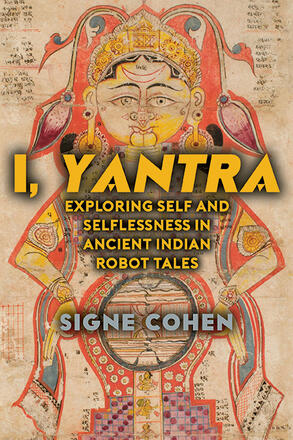
I, Yantra
Exploring Self and Selflessness in Ancient Indian Robot Tales
Alternative formats available from:
Argues that ancient yantra (robot) tales reveal how their Hindu, Buddhist, and Jain authors thought about the nature of humanity and our role in a cosmos filled with divine and natural forces.
Description
What does it mean to be human? I, Yantra examines ancient Indian narratives about robots and mechanically constructed beings to explore how their Hindu, Jain, and Buddhist authors approached this question. Making translations of many of these texts available in English for the first time, author Signe Cohen argues that they shed considerable light on South Asian religious notions of humanity, self, and agency. She also documents connections between ancient and modern responses to the ethical problems of what precisely constitutes a sentient being and what rights such a being should have. Situated at the intersection of humanities and bioethics, this cross-disciplinary study will be of interest to scholars of South Asian languages and literature as well as specialists in religion and technology.
Signe Cohen is Associate Professor of Religious Studies at the University of Missouri. She is the author of Textual Criticism and Sacred Texts and Text and Authority in the Older Upaniṣads and the editor of The Upaniṣads: A Complete Guide.
Reviews
"Cohen's book reveals the fascinating story of androids and automata in ancient and medieval India through sources that are almost completely unknown today. Drawing connections between areas and times that most people consider unrelated, it presents a hidden history of the overlaps between the deep past and imagined futures, between religion and technology, and between Asian and Mediterranean civilizations." — Michael Slouber, Western Washington University
"Cohen rightly points out the lacuna in current scholarship on the subject of androids in Indian literature. She also poses an enticing central research question: What does reading android stories in Indian literature tell us about South Asian conceptions of human personhood? This is a fascinating and novel approach to questions of humanness in South Asian religions." — Gregory M. Clines, Trinity University